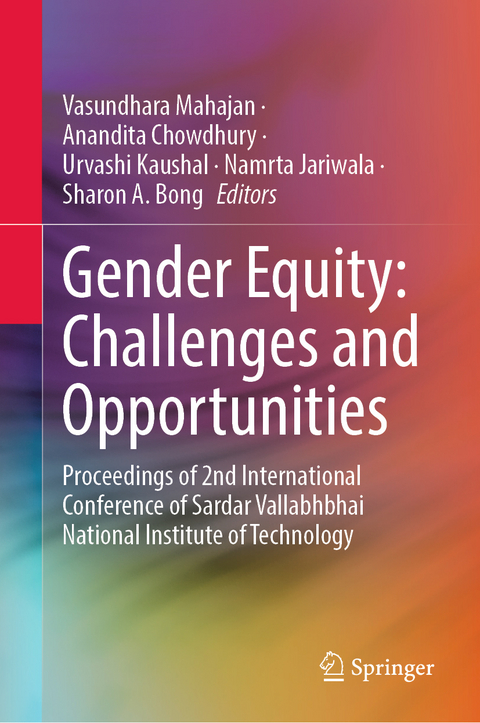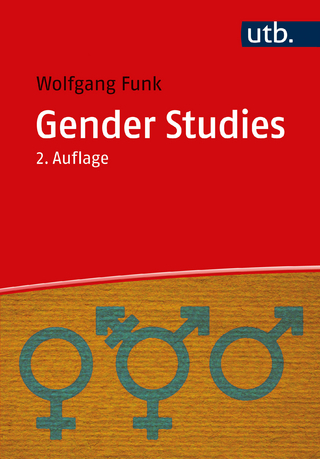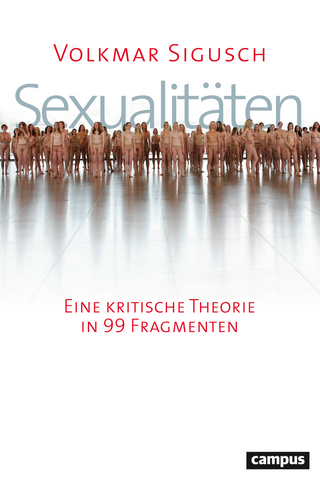
Gender Equity: Challenges and Opportunities
Springer Verlag, Singapore
978-981-19-0459-2 (ISBN)
This book comprises the proceedings of the TEQIP III Sponsored 2nd International Conference on “Gender Equity: Challenges and Opportunities” (2nd ICOGECAO 2020 -Virtual Mode), held at Sardar Vallabhbhai National Institute of Technology, Surat, Gujarat, India, from 25 to 27 November 2020. ICOGECAO provided a platform for researchers from multiple countries to present their views about the challenges associated with gender equity. Gender equity is one of the seventeen Sustainable Development Goals (SDG 5) set up by the United Nations in 2015, to promote and empower all genders equally. The proceedings strongly support the ideas of gender neutrality and blow out the mind-set of limiting gender studies to only women rights. They offer a collection of articles that break the stereotypes and myths often wrongly associated with gender. The ideas in the presented papers highlight gender-based discriminations, ask important questions and share facts that encompass beyond the so-called boundary lines. The authors contributed on various topics including but not limited to violence, crime, discrimination, and abuse against women and LGBTQ+ community. The basic motive of the presented book is to incorporate ideas and contribute to the sensitization and education about the important yet often neglected issues of gender equality. Thus, this book proves to be an essential resource for educators and researchers working in the field of gender studies. The work presents challenges caused due to COVID-19, social media, popular culture and work–life balance and explores empowerment through law, skills, technology and media. Some interesting case studies highlighted gender discrimination in science, sports and law. A variety of papers on literary texts were examined from a gender lens. The proceeding is divided into five subsections: 1. law, 2. literature, 3. management, 4. sociology and 5. social studies. The proceeding provides a wider perceptive and visuals about the scenarios which needs attention. The ideas presented will be helpful for achieving the sustainable development goal of gender equity to a greater extent.
Vasundhara Mahajan is Associate Professor in the Department of Electrical Engineering, Sardar Vallabhbhai National Institute of Technology (SVNIT), Surat, Gujarat, India. Vasundhara has obtained her doctoral (Ph.D.) in 2014 and master degree (M. Tech.) in 2005 form IIT Roorkee and graduated in Electrical Engineering from NIT, Raipur, (formerly GEC) in 1999. She worked as Lecturer at Christian College of Engineering and Technology, Bhilai, Chhattisgarh, from September 2000 to October 2007 and then joined Sardar Vallabhbhai National Institute of Technology (SVNIT), Surat, Gujarat. Since October 2007, she is at SVNIT. She has published around 70 papers in international/national journals/conferences. She has organized many short-term training programmes and workshops at SVNIT. She has guided many M.Tech. and B.Tech. projects. Under her guidance, two students have completed their doctoral programme in 2020. Presently, she is guiding three doctoral candidates. Her research areas arepower system reliability, cyber security, restructuring/deregulation, energy market, congestion management, power quality improvement, active power filters, FACTS and artificial intelligence and machine/deep learning. Recently, she was involved in working for gender equity and women rights. Vasundhara has organized one workshop and two international conferences on gender equity and helped the less-privileged community to be heard. Anandita Chowdhury is Professor in the Department of Electrical Engineering, Sardar Vallabhbhai National Institute of Technology (SVNIT), Surat, Gujarat, India. She did her bachelors and master’s degree from Bengal Engineering College, currently Indian Institute of Engineering, Science and Technology, Shibpur, West Bengal, and Ph.D. from Indian Institute of Technology, Kharagpur. Anandita is a passionate teacher, and she has more than twenty-five years of teaching experience. Apart from her regular technical research and studies, she is concerned about socio-economic status of women, gender parity and issues related to patriarch society. She is an earnest reader of literatures, and she likes to be updated by sociopolitical happenings across the globe. She has organized workshop and conferences on women in higher education and gender equity. She has raised her voice against exploitation, violence on females in several occasions, whether be it at home or workplace. Anandita is still working on gender equity to reach closer to sustainability development goals. Urvashi Kaushal is Assistant Professor of English in the Department of Applied Mathematics and Humanities of Sardar Vallabhbhai National Institute of Technology (SVNIT), Surat, Gujarat, India. She teaches English and Professional Communication to Engineers and Science students. Her areas of research are communication skills, employability skills, Indian women novelist, Indian English fiction, diaspora literature and postcolonial fiction. With her interest in postcolonial fiction, she has studied place in double diaspora literature, representation of homeland in the works of diaspora, literature of war and partition from South Asia and the emergence of “New Woman” in Indian English fiction. She has successfully guided three doctoral researches and is currently guiding five more. She has published 40 articles in journals of international/ national repute and has presented papers in more than 20 conferences. She has also organized many events like national workshops, training programmes and international conferences. She is Reviewer of 4 international journals and enjoys reading, writing and teaching. Namrata Jariwala is working as Assistant Professor in the Department of Civil Engineering at Sardar Vallabhbhai National Institute of Technology (SVNIT), Surat, Gujarat, India. She is having 20+ years of teaching experience at undergraduate and postgraduate level. She has obtained bachelor’s degree in Civil Engineering and master’s degree in Environmental Engineering from M. S. University, Vadodara, Gujarat, India. She was awarded gold medal for securing highest marks in bachelor’s study. Namrata has obtained Ph.D. from Sardar Vallabhbhai National Institute of Technology (SVNIT), Surat, Gujarat, India. Namrata is SVNIT EQUATE Coordinator under Technical Education Quality Improvement Programme III (TEQIP), equate component of TEQIP III. This mainly works with faculty and students for promoting gender equality, social equality for people from scheduled castes and tribes as well as equal opportunities for economically weaker sections in institute environment. She has organized 2 interdisciplinary international conferences and various faculty development programmes. She has coordinated the training programme for environmental auditor with GPCB Gandhinagar, Gujarat. Her areas of research are health and risk studies in environmental engineering, air pollution-related studies, soft computing techniques in environmental engineering and fuzzy logic and its application. She has published 8 papers in national journals and 12 papers in international journals. She has presented many papers in national and international conferences. She has guided 3 Ph.D. students and 21 M.Tech. students. Apart from her academic career, she has handled various consultancy projects of Surat Municipal Corporation (SMC) and of other local govt. bodies in water and wastewater treatment and solid waste management area. Sharon A. Bong is Associate Professor of Gender Studies at the School of Arts and Social Sciences, Monash University Malaysia. She graduated with a Ph.D. in Religious Studies (2002) and M.A. in Women and Religion (1997), University of Lancaster, UK. She has authored Becoming queer and religious in Malaysia and Singapore (2020), The Tension Between Women’s Rights and Religions: The Case of Malaysia (2006), co-edited Gender and Sexuality Justice in Asia (2020) and Re-imagining Marriage and Family in Asia: Asian Christian Women’s Perspectives (2008) and edited Trauma, Memory and Transformation in Southeast Asia (2014). She is former Consultant and Coordinator of the Ecclesia of Women in Asia, an academic forum of feminist Catholic women theologians in Asia, Forum Writer for the Catholic Theological Ethics in the World Church (on Asian feminist theology and ethics, ecological ethics, gender and sexual ethics, postcolonial theories and LGBTQ theologies) and on the Board of Editors for Concilium, the international journal for theology.
Chapter 1. Digital Technology And Gender Equity: Challenges And Opportunities In Fragile And Conflict-Affected Settings.- Chapter 2. COVID-19 and Gender Equality: An Abnormal Normality.- Chapter 3. Parental Acceptance and Challenges Faced by LGBTQ Youth in India and their Mental Health.- Chapter 4. Assessing Abused Women Who Kill: (Ir)relevance of Gender in the Treatment of Spouse-Murder Defendants by the Criminal Justice Systems.- Chapter 5. An Assessment of Gender Inequality Experienced by Female Youth in Indian Household during Covid19 Online Classes.- Chapter 6. She Education, Not Necessarily a Job Quotient.- Chapter 7. Gendered Experiences in the Virtual World: Online Harassment of Women and LGBTQI.- Chapter 8. Plight of the Women Workers in Unorganised Sector- A Growing Challenge.- Chapter 9. A Study of Legislative Framework For Women Protection in Indian.- Chapter 10. Smart Technologies for Smart Women Entrepreneurs.- Chapter 11. Gender Equity in Addressing the Multiplicity Within ‘masculinity’ Through Popular Culture.- Chapter 12. Insights of Work-Life Balance from Women’s Perspective.- Chapter 13. Locating Non-Normative Gender Construction within Early Textual Traditions of India.- Chapter 14. Gender Inequality: Academic, Economic, Social and Pandemic viewpoint.- Chapter 16. Gender Equity Through Gender Empathy and Inclusivity.- Chapter 17. Gender In Society Gender Inequality Hurting Humanity.- Chapter 18. Benevolent Sexism In The 21st Century: Exploring Law And Practice In India.- Chapter 19. Disparities Related Wages among Male and Female Workers The Study of Sector Wise in Rural India.- Chapter 30. Marital age and fecundity as predictors of gender-based violence in Uttarakhand, India.- Chapter 31. The Relevance of Intervention Programmes in School-Setting to Sensitize Children Towards Gender Equity.- Chapter 32. Excruciation and Revelation in Manju Kapur’s Difficult Daughters.- Chapter 34. Psychological Empowerment of Women Chapter 35. Impact of National Rural Livelihood Mission (NRLM) on Socio Economic Status of Scheduled Caste Women in Rural Assam.- Chapter 36. Social Transformation in India: An Analysis with Specific Reference to Judicial Contribution Towards Protection of Human Rights of Women.- Chapter 37. Is Woman a Homogeneous Category? Understanding.- Chapter 38.Latent Factors of Financial Literacy and Financial Well-being.- Chapter 39. Gender equity: Challenges and opportunities.- Chapter 40 The Feminine in Kabir.- Chapter 40. Unequal Lives of Homosexual Groups: A Review of Literature.- Chapter 41. Achieving Equality Among Gender and Ethnic Groups through Multicultural Education: A Review.- Chapter 42. Achieving Gender Equity: A Case for Science Education in India.- Chapter 54. Revitalizing the Paradigm of Water Equity with Gender Dimension: Options and Opportunities for Symbiotic Water Law.
| Erscheinungsdatum | 03.05.2022 |
|---|---|
| Zusatzinfo | 27 Illustrations, color; 16 Illustrations, black and white; LV, 529 p. 43 illus., 27 illus. in color. |
| Verlagsort | Singapore |
| Sprache | englisch |
| Maße | 155 x 235 mm |
| Themenwelt | Sozialwissenschaften ► Politik / Verwaltung |
| Sozialwissenschaften ► Soziologie ► Gender Studies | |
| Sozialwissenschaften ► Soziologie ► Makrosoziologie | |
| ISBN-10 | 981-19-0459-6 / 9811904596 |
| ISBN-13 | 978-981-19-0459-2 / 9789811904592 |
| Zustand | Neuware |
| Haben Sie eine Frage zum Produkt? |
aus dem Bereich


